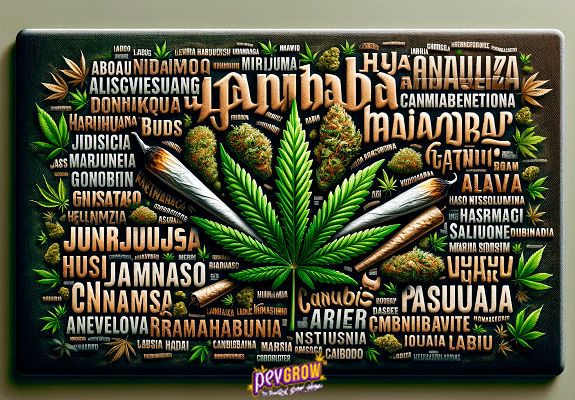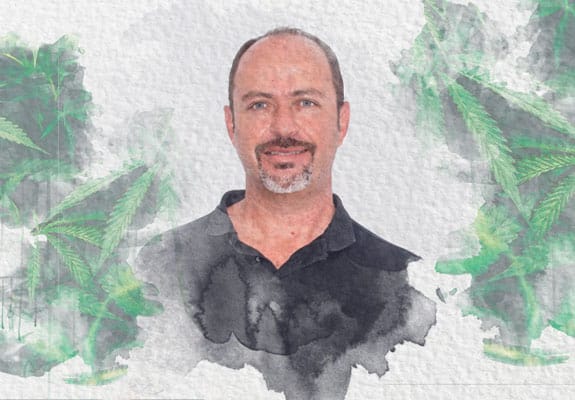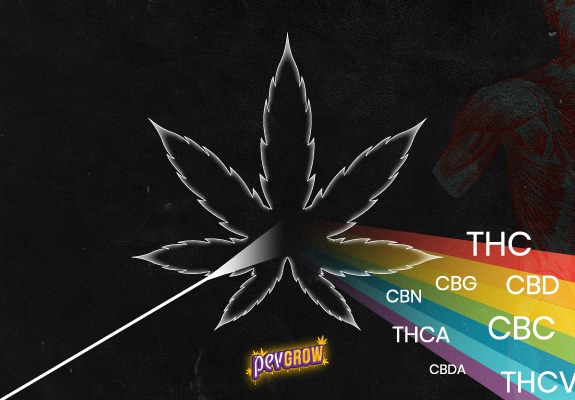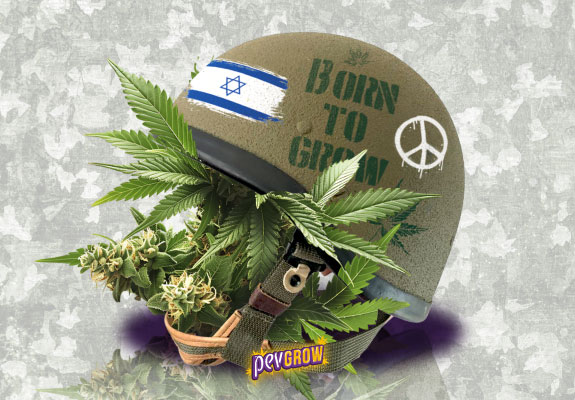

In constant struggle for the regulation of cannabis, mainly in the medicinal field.
01-12-2023 09:00:00 - Updated: 1 December, 2023
Marijuana, a plant with as much historical significance as a variety of names, is known worldwide not only for its psychoactive effects but also for the cultural richness reflected in its nicknames. In this article, we will navigate across continents exploring the most peculiar names of this herb, their linguistic origins, and some anecdotes that have marked popular culture, but beware! I’m not referring to the names of marijuana seeds, I’m talking about how cannabis is called in different places.
⛳ Europe: Between Colloquial and Learned
Spain gives us “porro” and “maría“, where “porro” might come from the resemblance to a musical instrument due to its rolled shape, while “maría” is a simple derivative or diminutive of marijuana.
France refers to it as “beuh“, a phonetic simplification of “herbe“. Interestingly, “chichon“, also used in France, shares sound with the Spanish word “chichón”, although they are unrelated.
In Italy, “erba” simply means “herb”, showing how language tends towards simplicity. “Maria“, also present here, highlights how some terms transcend borders.
The Netherlands stand out with “wiet“, derived from “weed” (an English term for grass or herb), probably due to the influence of English and the internationality of Amsterdam.
⭐ Latin America: Local Colors in Naming
From the Argentine “faso“, which might derive from “fascículo” due to the shape of marijuana cigarettes, though this is not entirely clear, to the Uruguayan “porro“, each term tells a story.
In Mexico, “mota” seems to have uncertain origins, but its use has become so widespread that it is now part of the national slang. “Churro“, on the other hand, shares its name with a popular sweet treat, due to its similar elongated and filled shape.
Colombia and its “bareta” might have a connection with the word “bar”, perhaps due to the way the plant’s resin is pressed, while “moño” invokes the image of something adorned and precious.
✨ North America: Influence of Pop Culture
“Pot” and “weed” are common terms in the United States, both with origins related to the plant: “pot” could come from the Spanish “potiguaya” or “potación de guaya”, a brew of wine with marijuana seeds, and “weed” simply because it grows like a weed.
Canada, being bilingual, uses “pot“, like its southern neighbors, and “herbe” from its Francophone side, showing the cultural mix of the country. In some cases in Canada, they also call it grass, possibly due to its American influence.
👌 Asia and the Middle East: Traditions and Language
“Ganja“, of Sanskrit origin, is used in countries like India and Nepal. The word has ancient roots and refers to a group of three sacred plants in Ayurvedic texts.
In China, it’s called “dàmá“, which literally means “big hemp”, reflecting the recognition of the plant for its textile as well as psychoactive properties.
📲 Africa: Diversity and Culture
South Africa offers “dagga“, a term that comes from the Khoikhoi language, underscoring the deep roots of the plant in indigenous culture.
Morocco, famous for its hashish, uses “kif“, which in Arabic means pleasure or good mood, reflecting the plant’s relationship with states of euphoria.
🚀 Oceania: Influence and Dialect
In Australia, “bud” is common, sharing the term with American English, while “choof” is a more localized slang. “Bud” refers to the part of the plant that is consumed, while “choof” seems to be an onomatopoeic term, imitating the sound of smoking.
✅ Other names for our beloved herb
- Spain: Hierba, yerba, cañamo.
- Mexico: Pasto, yerba, grifa, marijuana.
- Argentina: Porro, marihuana, chala.
- Chile: Pito, caño, yerba, paragua (referring to low-quality marijuana from Paraguay).
- Colombia: Cripy (referring to a high-quality variety).
- Uruguay: Faso, maría.
- Peru: Chira, pitillo, cuete.
- Venezuela: Monte, moña.
- Cuba: Yerba, tabaquito de la risa.
- United States (English): Grass, ganja, dope, reefer, Mary Jane, bud, chronic.
- United Kingdom (English): Spliff, weed, skunk, ganja.
- Jamaica: Ganja.
- Brazil (Portuguese): Maconha, erva, baseado.
- Portugal (Portuguese): Charro, ganza.
- France (French): Cannabis, beuh, ganja, chichon.
- Italy (Italian): Ganja, weed.
- Netherlands: Joint, blowen.
- Germany (German): Gras, weed, hanf.
- Russia (Russian): Анша (ansha), травка (travka), ганджубас (gandzubas).
🔥 Curiosities and Anecdotes
The names of marijuana have given rise to interesting and sometimes humorous anecdotes. For example, the full “María Juana” becomes “marijuana” and later “marihuana” in many places, showing how the tendency to contract words affects language. On the other hand, in many English-speaking countries, low-quality marijuana is called Reggie Weed, a term that is spreading to other languages lately.
Furthermore, terms like “reefer” may have peculiar origins. Some suggest it comes from “grifo”, used in Mexico to refer to someone crazy or unhinged, possibly due to the drug’s effect. In popular culture, “reefer madness” was a term coined by a homonymous 1936 film that was intended to be an educational documentary about the dangers of cannabis.
In summary, the names of marijuana are as varied as the cultures that consume it. Each term tells a story, reflects a society, and often carries a smile or a cultural wink. With this linguistic and anecdotal journey, we hope to have added a new layer of understanding and appreciation to this plant as debated as it is revered.
🎯 Conclusion
The names of marijuana, reflections of history, culture, and the idiosyncrasies of each place, are a mosaic of human speech. By investigating these terms, we not only learn about the plant itself but also about human nature and our way of relating to the natural world. From “reefer” to “dagga”, each word has its place in the rich grammar of language and global cannabis culture.
👾 Frequently Asked Questions
Why does marijuana have so many different names?
Marijuana has a variety of names due to the diverse cultures and languages that have adopted it throughout history. Each society has developed its own term for the plant, influenced by linguistic, historical, and social factors.
Can the name given to marijuana influence its legal and cultural perception?
Absolutely. In some contexts, colloquial names may be used to downplay its illegality or to evade censorship, while other terms may be employed in legal or medical discourse to legitimize its use.
Are there specific names for medicinal marijuana?
In the medical context, the term “medical cannabis” is often used to distinguish it from recreational use. However, some of the colloquial names are also used in less formal settings.
Does the use of different names for marijuana affect its marketing?
Yes, in the legal cannabis industry, marketing can play with the variety of names to appeal to different audiences or to emphasize certain qualities of the product, such as its origin or effects.





